|
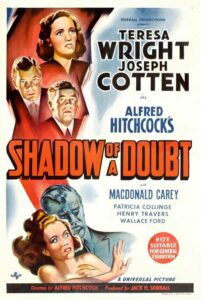
Synopsis:
A teenager (Teresa Wright) in a small town hopes that the arrival of her beloved Uncle Charlie (Joseph Cotten) will bring some excitement into her family’s lives; soon, however, she learns the devastating truth that Uncle Charlie is the “Merry Widow Murderer”, wanted for killing widows on the East Coast.
|
|
Genres, Themes, Actors, and Directors:
- Amateur Sleuths
- Fugitives
- Hitchcock Films
- Hume Cronyn Films
- Joseph Cotten Films
- Serial Killers
- Small Town America
- Teresa Wright Films
Response to Peary’s Review:
As Peary notes, this “top-grade Alfred Hitchcock thriller” — which he nominates as one of the Best Films of the Year in his Alternate Oscars book — examines the “thin line between the normal and abnormal,” as exemplified by contrasts between the film’s two central characters: “a smart, spirited, typical young woman named Charlie (Teresa Wright) who lives with her average family in an average American town, and her insane itinerant bachelor Uncle Charlie (Joseph Cotten).” It’s immediately clear, as Peary points out, that “the two Charlies are two sides of the same person”, and that “young Charlie” will have to experience a rude awakening once she recognizes the truth about her beloved namesake. Indeed, the entire film is structured as an elaborate “coming of age” for adolescent Charlie, who must not only give up her childish fantasies about her uncle, but must protect her mother (Patricia Collinge) from learning the truth about her cherished younger brother, and, in one of the film’s weaker subplots, falls in love for the first time (with MacDonald Carey, a detective on the case).
As in his discussion of “Bruno Anthony” (Robert Walker) in Strangers on a Train (1951), Peary once again argues that the villain in this Hitchcock film is worthy of our sympathy. He notes that Uncle Charlie evokes “strange pity” once we realize he “has many of Wright’s finer qualities, and that he might have been as virtuous and happy as she if he hadn’t had a concussion-causing accident as a child that suddenly made him wild”. But I disagree with Peary that we “sometimes wish Wright would stop her sleuthing” — Cotten is clearly deranged (in his “twisted mind”, he “thinks up ways to kill his niece”), and needs to be caught before he murders again. See TCM’s article for a fascinating discussion of how the script — which was co-written by Thorton Wilder, and explores the darker side of “small town America” — gradually emerged through collaborative effort.
Redeeming Qualities and Moments:
- Teresa Wright as “young” Charlie (nominated by Peary as Best Actress of the year)
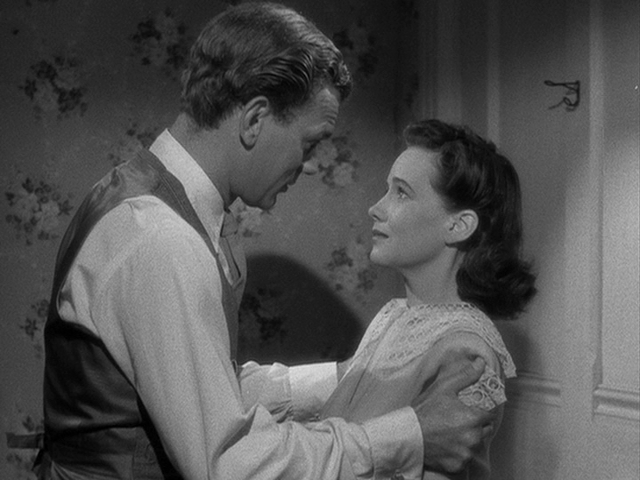
- Joseph Cotten as Uncle Charlie (nominated by Peary as Best Actor of the year)
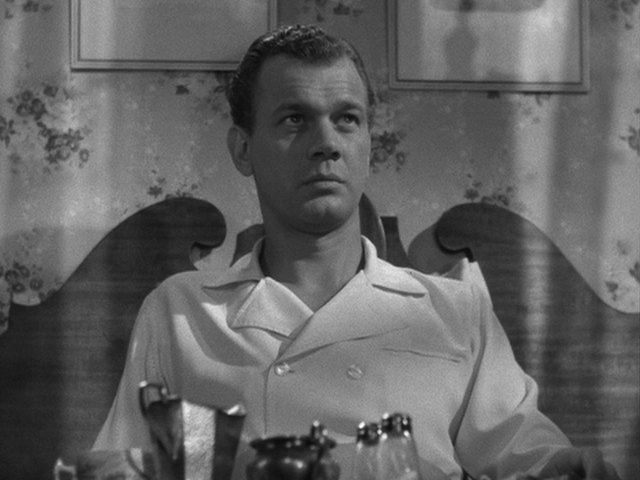
- Patricia Collinge as Uncle Charlie’s doting sister
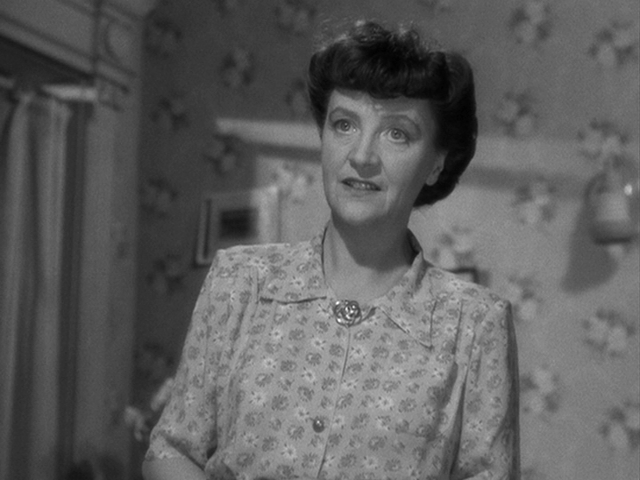
- Effective use of Santa Rosa locales
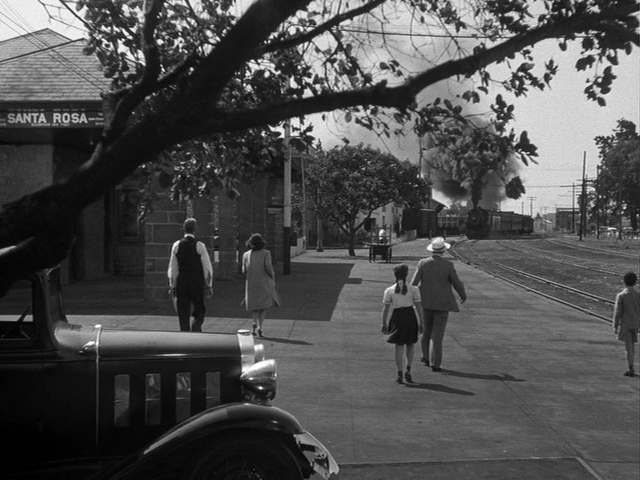
- Joseph Valentine’s cinematography
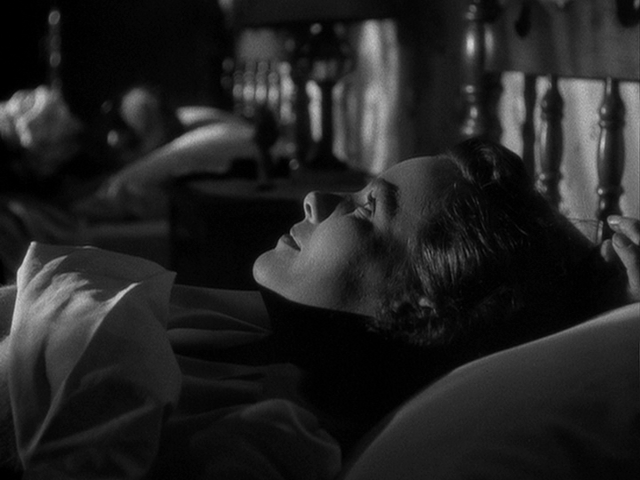
- An enjoyably creepy story of evil in a small town
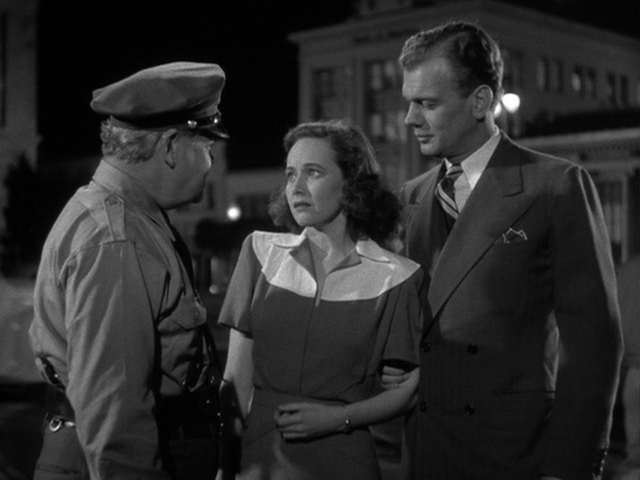
Must See?
Absolutely. This classic is one of Hitchcock’s best, and merits multiple viewings.
Categories
- Genuine Classic
- Important Director
(Listed in 1001 Movies You Must See Before You Die)
Links:
|







One thought on “Shadow of a Doubt (1943)”
Of course, a must; one of Hitch’s best films – and the one that’s my favorite.
I was unaware til now that so many people assembled the screenplay – even if Thornton Wilder gets ‘overall’ credit (I suppose for anchoring the script with his sensibility). But that is where film quite often differs from theater: the screenwriter doesn’t have the power of final say. And, in a case like ‘SOAD’, something like ‘final say’ appears to have been beside the point. What seems to have happened is that care was taken to make sure that, whoever was adding elements, everything was to remain true to the basic structure and the central story.
It’s that central story that makes this my favorite of Hitch’s work: the idea that something repellent is hiding out in what seems a nice, if somewhat dull town. Santa Rosa is depicted as the kind of town where everybody knows everybody – as well as everybody’s business; the kind of town where, if something as horrendous as a murder were to happen, the entire town would be terrified, with people saying things like “That kind of thing just doesn’t happen here.”
And I suppose that’s Hitch’s main point: that things do happen everywhere and people can kid themselves if they think there is such a thing in the world as an ordinary or “safe place”. Then again, that could just be my interpretation. (Though Hitch would revisit this theme of ‘the strange invading the ordinary’: ‘Rope’, ‘The Wrong Man’, ‘The Trouble With Harry’, perhaps others.)
The performances are all exemplary (I especially like the naturalness of the younger children, saying some of the ‘off-the-wall’ things kids of that type would say). But here’s a film that first and foremost affects me with its mood, its presence. It’s actually pretty scary, even though almost nothing happens in it that is particularly scary.
His childhood accident notwithstanding, I can’t say I feel sympathetic toward Uncle Charlie. He’s perfectly in control of himself and knows exactly what he’s doing. He plots carefully. (Note the scene early on, when his relatives come to meet him at the station: as they’re walking briskly ahead of him, carrying his bags, he’s slowing down and lagging behind – seemingly to get a good look at this small group of people he already seems to be thinking of as gullible. Note his smile.) A particularly unusual thing about Uncle Charlie is his observations about people and life. Quite often he’s right: there are things about relatively harmless people that are unsavory and, in a sense, worthy of contempt. Uncle Charlie’s view is that the world is essentially a horrible place – and one can’t exactly fault him there, either. However, like John Dall’s character in ‘Rope’, Uncle Charlie thinks he’s better than…well, almost anybody, it seems. He has embraced his ‘vigilante’ spirit fully.
‘SOAD’ has the added plus of often being quite funny, esp. with many of the throwaway lines. Yes, the love interest angle is a bit unfortunate and awkward. But that’s only a slight bother. This is a film I can say sweeps me up each time I see it.
Fave scene: Uncle Charlie takes his niece Charlie to the ‘Til Two’ bar for a…chat.